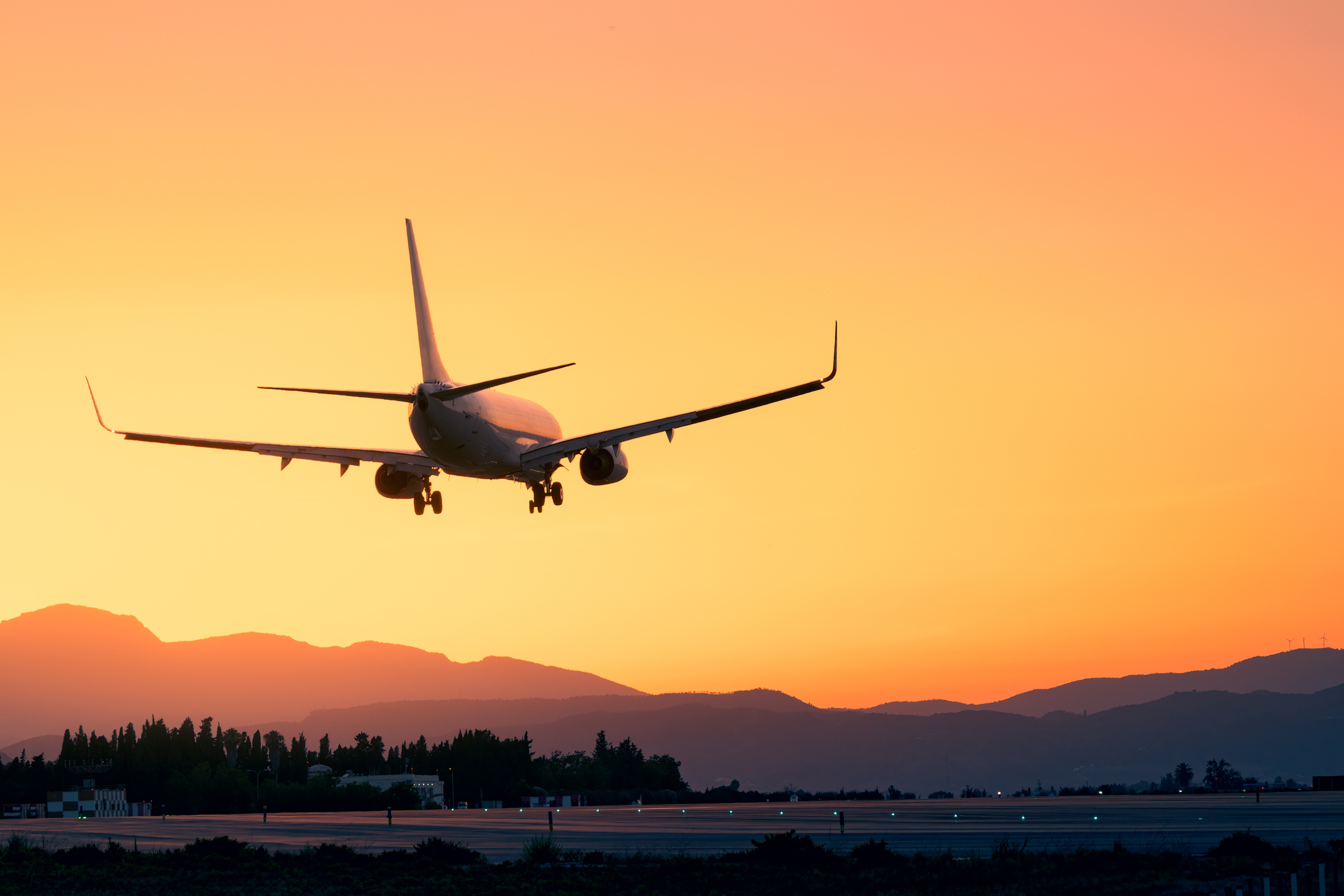Why I'm Not Chasing Airline Status This Year
What's a PQP anyways?


Profit and prosper with the best of Kiplinger's advice on investing, taxes, retirement, personal finance and much more. Delivered daily. Enter your email in the box and click Sign Me Up.
You are now subscribed
Your newsletter sign-up was successful
Want to add more newsletters?

Delivered daily
Kiplinger Today
Profit and prosper with the best of Kiplinger's advice on investing, taxes, retirement, personal finance and much more delivered daily. Smart money moves start here.

Sent five days a week
Kiplinger A Step Ahead
Get practical help to make better financial decisions in your everyday life, from spending to savings on top deals.

Delivered daily
Kiplinger Closing Bell
Get today's biggest financial and investing headlines delivered to your inbox every day the U.S. stock market is open.

Sent twice a week
Kiplinger Adviser Intel
Financial pros across the country share best practices and fresh tactics to preserve and grow your wealth.

Delivered weekly
Kiplinger Tax Tips
Trim your federal and state tax bills with practical tax-planning and tax-cutting strategies.

Sent twice a week
Kiplinger Retirement Tips
Your twice-a-week guide to planning and enjoying a financially secure and richly rewarding retirement

Sent bimonthly.
Kiplinger Adviser Angle
Insights for advisers, wealth managers and other financial professionals.

Sent twice a week
Kiplinger Investing Weekly
Your twice-a-week roundup of promising stocks, funds, companies and industries you should consider, ones you should avoid, and why.

Sent weekly for six weeks
Kiplinger Invest for Retirement
Your step-by-step six-part series on how to invest for retirement, from devising a successful strategy to exactly which investments to choose.
Over the holidays, my uncle-in-law asked my husband and I about our big year of travel: A honeymoon across Australia and New Zealand, then a few weeks jet-setting Europe to celebrate weddings and birthdays, as well as a handful of domestic trips.
He suggested we must have a lot of airlines points now, and I told him I qualified for Premier Silver at United.
"What does that get you?" he asked. "Free flights?"
From just $107.88 $24.99 for Kiplinger Personal Finance
Become a smarter, better informed investor. Subscribe from just $107.88 $24.99, plus get up to 4 Special Issues

Sign up for Kiplinger’s Free Newsletters
Profit and prosper with the best of expert advice on investing, taxes, retirement, personal finance and more - straight to your e-mail.
Profit and prosper with the best of expert advice - straight to your e-mail.
"Nope," I told him, "mostly it gets me three extra inches of legroom."
I'm not a business traveler, but I typically take a handful of flights each year paid out of my own pocket. I often fly United because, more often than not, they have the flight routes I need. It took the biggest — and most expensive — year of travel of my life to reach the lowest tier of United's Premier status, and while I'm enjoying the free checked bag, I won't be chasing status in 2025. Here's my thinking.
United's Premier status is harder to get now
Now, don't get me wrong, I understand the value of status with an airline: I was raised by a father who mocked George Clooney's mileage aspirations in Up in the Air as low. But the reality is that while I travel what I consider a healthy amount, I'm not a consultant flying out to a client every week or booking a first-class ticket through my employer once a month. And for us lowly leisure travelers who merely fly abroad once or twice a year, I just don't know how realistic airline status is.
So, first and foremost, I won't be pursuing airline status, or really thinking about it much at all, because I know I won't be able to attain it.
Last fall, United announced changes to how you can qualify for its Premier tiers, largely make it harder to meet the thresholds. United uses a system of Premier Qualifying Points (PQPs) and Premier Qualifying Flights (PQFs) to track status (more on those definitions later). In 2024, to reach Silver, you needed 4,000 PQPs and 12 PQFs, or just 5,000 PQPs. In 2025, you need 5,000 PQPs and 15 PQFs, or just 6,000 PQPs.
Similar moves have happened on other airlines post-pandemic. Delta controversially increased its SkyMiles program in 2023; after overhauling its program in 2023, JetBlue is still tinkering with Mosaic.
So if I barely eked in last year, I just don't think I'll be passing the higher thresholds this year. This all brings me to my next point...
Airline status is too complicated to keep up with
PQP, PQF, Mosaic, Medallion, Companion Pass, give me a break. There's a lot of complication to airline status, miles and points.
For United's program, you need "Premier qualifying flights," literally legs of a flight. So to qualify for Silver this year, you need to take 15 (qualifying) flights. PQPs refer to "points," which is different from miles, and generally corresponds to how much actual money you spent on a flight — if you pay for an upgraded seat or fare, for example, you'll get more points. Last year, I spent a good amount of time tracking down my flights to make sure those on allied airlines got counted towards my United status.
Then add on top of that travel rewards credit card points. You can get a United credit card, changing up the equation as you can earn PQPs in different ways, and I can't tell you how many times I've tried to follow a TikTok travel rewards influencer (yes, they exist) explain how to transfer points from my Amex gold card to another Star Alliance airline to book a United flight.
Really, I get it, you can save money by going down these rabbit holes and taking one extra flight to reach the PQF you need and making sure you get a J-class ticket not an S-class ticket and etc., etc., etc. But life is so short, and I want to have time to read books and talk to my family and not spend hours researching before I book a flight and use up brain space memorizing airline status rules.
So my philosophy this year is that if it happens, it happens. I'll book the flights I want, and if they qualify as a PQF and get me to Silver again, great — but I'm not going to spend more time than that trying to track it all down.
Is airline loyalty worth it?
Having loyalty to an airline can give you perks, but it also means you're limited in your flight choices. The Wall Street Journal recently reported on people giving up on chasing airline loyalty programs. One flier told the reporter he "finds it increasingly hard to justify the often higher cost of flying with a preferred carrier in the name of maintaining status."
That's something I can relate to. Living in New York City, I'm surrounded by airline options, so when I look for flights, I can see many different carrier options. If I were to always book the same airline for the sake of status, I might end up losing money in the long-run.
Let's say I book a United flight that's $250 more expensive than an American Airlines flight so I can maintain Silver and, with it, my free checked bag and extra-legroom seat. But maybe I don't need to check a bag for a weekend trip and the seat upgrade on American would be $50. Did I really save by sticking with the brand?
So this year, when I saw the extra-legroom fare for a Delta flight was less expensive than its United economy counterpart, I went ahead and booked it without worrying about my United status.
The bottom line for me on chasing airline status
If you naturally travel a ton, attaining airline status is easier, and using it is a blessing. Seat upgrades, checked bags, lounge access, early boarding and so on are all very nice and make traveling that much easier, more comfortable and potentially less costly.
I've written before about Clear vs TSA PreCheck vs Global Entry and how I let my Clear membership lapse because the lines at airports were getting too long. It was a similar calculation: Yes, I understand getting to the front of a TSA line is valuable, but if my experience was that it didn't always get me there faster and it came with a price-tag despite discounts from airline memberships and credit cards, I accepted that it's not worth it to me.
I definitely think having loyalty accounts with airlines is a good idea as you can rack up miles that can be redeemed and sometimes get better fares. Likewise, loyalty accounts are good to keep around for car rental companies like Enterprise, hotel companies like IHG, and even Amtrak.
Similarly, I'll use my credit card rewards points (and, indeed, I learned how to transfer them to airlines, it's really not that hard) and, if it makes sense, maybe someday I'll open a credit card with an airline rather than working with a broad Amex Gold or Chase Sapphire.
But if it's going to be a hassle to reach loyalty status levels, do you really travel enough for it to be worth it? Personally, I'm not going to sweat it.
Related content
Profit and prosper with the best of Kiplinger's advice on investing, taxes, retirement, personal finance and much more. Delivered daily. Enter your email in the box and click Sign Me Up.

Alexandra Svokos is the digital managing editor of Kiplinger. She holds an MBA from NYU Stern in finance and management and a BA in economics and creative writing from Columbia University. Alexandra has over a decade of experience in journalism and previously served as the senior editor of digital for ABC News, where she directed daily news coverage across topics through major events of the early 2020s for the network's website, including stock market trends, the remote and return-to-work revolutions, and the national economy. Before that, she pioneered politics and election coverage for Elite Daily and went on to serve as the senior news editor for that group.
Alexandra was recognized with an "Up & Comer" award at the 2018 Folio: Top Women in Media awards, and she was asked twice by the Nieman Journalism Lab to contribute to their annual journalism predictions feature. She has also been asked to speak on panels and give presentations on the future of media and on business and media, including by the Center for Communication and Twipe.
-
 Quiz: Do You Know How to Avoid the "Medigap Trap?"
Quiz: Do You Know How to Avoid the "Medigap Trap?"Quiz Test your basic knowledge of the "Medigap Trap" in our quick quiz.
-
 5 Top Tax-Efficient Mutual Funds for Smarter Investing
5 Top Tax-Efficient Mutual Funds for Smarter InvestingMutual funds are many things, but "tax-friendly" usually isn't one of them. These are the exceptions.
-
 AI Sparks Existential Crisis for Software Stocks
AI Sparks Existential Crisis for Software StocksThe Kiplinger Letter Fears that SaaS subscription software could be rendered obsolete by artificial intelligence make investors jittery.
-
 One of the Most Powerful Wealth-Building Moves a Woman Can Make: A Midcareer Pivot
One of the Most Powerful Wealth-Building Moves a Woman Can Make: A Midcareer PivotIf it feels like you can't sustain what you're doing for the next 20 years, it's time for an honest look at what's draining you and what energizes you.
-
 I'm a Wealth Adviser Obsessed With Mahjong: Here Are 8 Ways It Can Teach Us How to Manage Our Money
I'm a Wealth Adviser Obsessed With Mahjong: Here Are 8 Ways It Can Teach Us How to Manage Our MoneyThis increasingly popular Chinese game can teach us not only how to help manage our money but also how important it is to connect with other people.
-
 Looking for a Financial Book That Won't Put Your Young Adult to Sleep? This One Makes 'Cents'
Looking for a Financial Book That Won't Put Your Young Adult to Sleep? This One Makes 'Cents'"Wealth Your Way" by Cosmo DeStefano offers a highly accessible guide for young adults and their parents on building wealth through simple, consistent habits.
-
 My Spouse and I Are Saving Money for a Down Payment on a House. Which Savings Account is the Best Way to Reach Our Goal?
My Spouse and I Are Saving Money for a Down Payment on a House. Which Savings Account is the Best Way to Reach Our Goal?Learn how timing matters when it comes to choosing the right account.
-
 We're 78 and Want to Use Our 2026 RMD to Treat Our Kids and Grandkids to a Vacation. How Should We Approach This?
We're 78 and Want to Use Our 2026 RMD to Treat Our Kids and Grandkids to a Vacation. How Should We Approach This?An extended family vacation can be a fun and bonding experience if planned well. Here are tips from travel experts.
-
 My First $1 Million: Retired From Real Estate, 75, San Francisco
My First $1 Million: Retired From Real Estate, 75, San FranciscoEver wonder how someone who's made a million dollars or more did it? Kiplinger's My First $1 Million series uncovers the answers.
-
 To Love, Honor and Make Financial Decisions as Equal Partners
To Love, Honor and Make Financial Decisions as Equal PartnersEnsuring both partners are engaged in financial decisions isn't just about fairness — it's a risk-management strategy that protects against costly crises.
-
 Top 5 Career Lessons From the 2026 Winter Olympics (So Far)
Top 5 Career Lessons From the 2026 Winter Olympics (So Far)Five lessons to learn from the 2026 Winter Olympics for your career and finances.